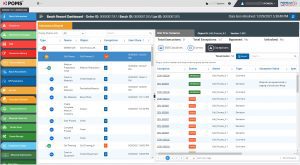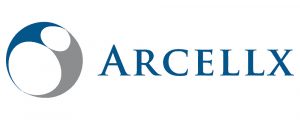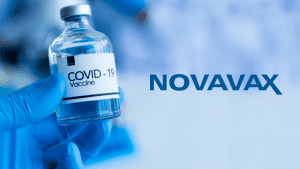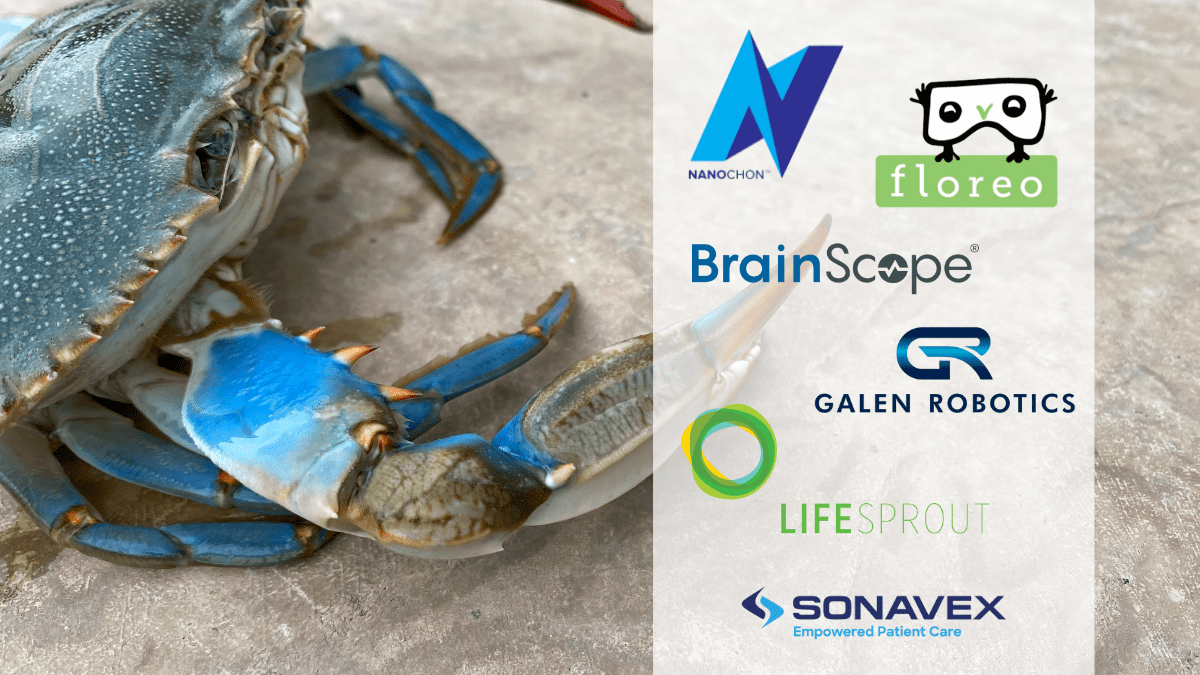
BioHealth Capital Region Forum Crab Trap Winners: Where Are They Now?
The BioHealth Capital Region Forum and Investment Conference are right around the corner on September 20th and 21st, 2022, respectively. And that means great networking opportunities, engaging panel discussions, valuable investor interaction and the celebrated and highly anticipated 7th annual Crab Trap competition.
The Crab Trap competition brings together entrepreneurs with innovative diagnostics, medical devices, therapeutics or other transformative health solutions to compete for a prize package valued at $50,000, which includes cash rewards and a one-year residency at JLABS @ Washington DC. Crab Trap finalists will earn the chance to make an in-person pitch at the BioHealth Region Investment Conference.
The application deadline is fast approaching. Interested entrepreneurs need to apply here by August 31st to qualify for the competition.
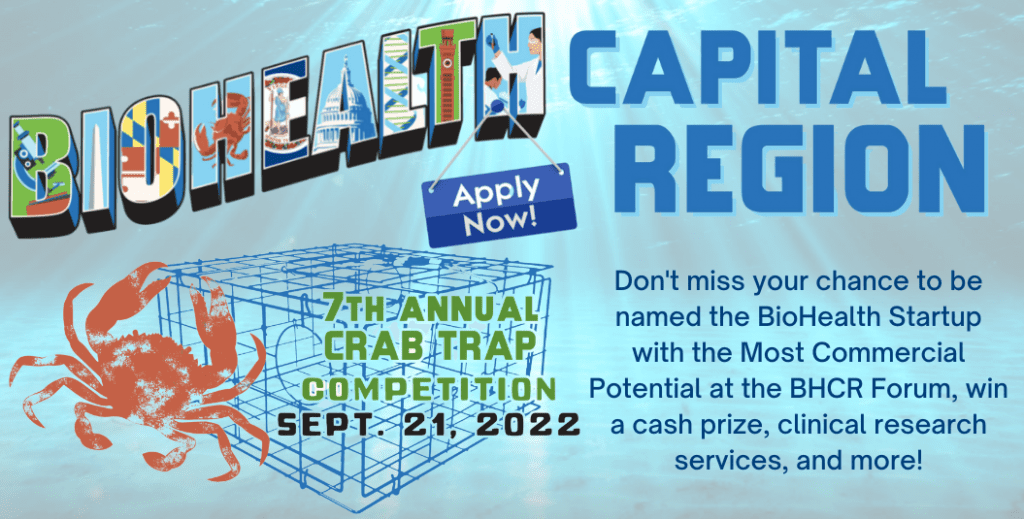
Ben Holmes, CEO of 2021 Crab Trap winner Nanochon, stated, “I have always enjoyed sharing Nanochon’s story, and getting feedback from knowledgeable experts, as well as the general community. Competitions like Crab Trap helped us announce the successful raise of a seed round, and helped us pull in some more investors. We are currently conducting some major efficacy studies of our technology, and will be raising a Series A this fall. Crab Trap taps leaders in the life science field to give companies in the region invaluable feedback and exposure. It also gave us a unique opportunity to be elevated here at home.”
“The Crab Trap competition and recognition of being an innovative technology judged amongst great peers was so valuable to Floreo. As a founder, it gave me confidence to keep driving forward and confidently raise new capital. And given the deep life science credentials of the conference, winning the competition helped establish Floreo as a leading metaverse healthcare company,” stated Vijay Ravindran, the CEO of Floreo, which won the Crab Trap’s top prize in 2019.
“Most recently, we have announced that we are the first VR technology in mental or behavioral health with an approved CPT 3 code going into effect in January 2023. We had less than a half dozen provider customers at the time of Crab Trap and today have over 100,” he added.
To celebrate the 7th annual Crab Trap event and showcase some of the exciting companies that have emerged from the winner’s circle, we thought we’d take a look back at some past winners and take a glance at where they are now.
Nanochon, 2021 Winner, Washington, D.C.
Led by CEO Benjamin Holmes, Nanochon’s mission is to “…develop a new approach to treat cartilage replacement and repair so that the hundreds of thousands of young, active patients with knee damage can return to their lifestyles without having to undergo costly and invasive short-term fixes.”
Founded in 2016, Nanochon’s technology is a minimally-invasive early intervention that could help avert the need for total knee replacement. The company has developed a Chondrograft™ device, a revolutionary medical advancement that is part orthopedic load-bearing implant, part tissue growth scaffold. Using 3-D printed designs and nanomaterial, Nanochon’s implant replaces lost or damaged cartilage and promotes new growth. This new technology could potentially deliver a faster, longer-lasting, and more affordable solution to joint disease and injury.
Most recently, Nanochon announced that it had closed a seed round to support its future growth. The company is pursuing Series A funding in the fall of 2022 and is actively engaged in efficacy studies for its lead technology.
BrainScope, 2020 Winner, Bethesda, Maryland
BrainScope is led by Chairwoman and CEO Susan Hertzberg. The company, founded in 2006, is a commercial stage medical neurotechnology company. The company’s main focus is assessing traumatic brain injuries, including concussions. The company has developed and commercialized the FDA approved BrainScope® One, a handheld product to empower physicians to make quick and accurate assessments for mild-head injuries within the previous 72 hours.
Developed using electroencephalogram (EEG) technology, advanced signal processing, machine learning technologies, and sophisticated algorithms, BrainScope® One identifies and assesses the brain’s electrical activity during a mild traumatic brain injury (mTBI). When someone has a brain injury, the electric signals of the injured brain are different from those who are uninjured. BrainScope One has the ability to assess the normal and injured brain’s electrical activity to identify mTBI in patients. The rapid identification of brain injury in terms of brain structure and function at the point of care provides a dramatic improvement to treat patients with mTBI or concussion.
Most recently, BrainScope was named 2022’s Best New Diagnostic Technology Solution by the MedTech Breakthrough Awards Program. In addition, the company named Dr. Diku Mandavia as its Chief Medical Officer.
The company has also raised over $32 million in U.S. Department of Defense research funding for the development of its technology, in addition to private investment from the Maryland Venture Fund and Revolution LLC. BrainScope has been nominated twice, in 2017 and 2018, for the Prix Galien Foundation U.S.A Award for Best Medical Technology Product. BrainScope was also named as Maryland’s Emerging Life Science U.S. Business of the Year award winner in 2016.
Floreo Inc., 2019 Winner, Rockville, Maryland
Floreo Inc. is led by CEO and Co-Founder Vijay Ravindran. Floreo’s vision is a world that is open and accessible for every neurodiverse person. The company’s mission is to create the first behavioral therapy metaverse, a virtual world that is safe for learners, equipping them with skills and tools they can apply in their everyday lives. Floreo Inc. has developed a VR platform that teaches social, behavioral, communication, and life skills for individuals with Autism Spectrum Disorder (ASD), ADHD, Anxiety and other neurodiverse conditions.
According to a recent Floreo LinkedIn post, “To-date, Floreo has provided services in the form of over 38,000 lessons taught to individuals in 20+ countries, and we are still at the early stages of fully scaling our company.” Floreo Inc. has grown to approximately 25 employees and was featured in a story by the New York Times in June 2022.
Galen Robotics, 2018 Winner, Baltimore, Maryland
Galen Robotics is led by President and CEO Bruce Lichorowic. Another JHU spinout, Galen Robotics was founded in 2016 in an effort to commercialize the Robotic ENT Microsurgical System (REMS) invented by Dr. Kevin Olds and Dr. Russell Taylor at JHU to prevent complications caused by hand tremors in minimally invasive otolaryngological interventions.
The company was one of the first companies to graduate from The LaunchPort, a leading business development program for early stage companies. The mission of Galen Robotics is to “…make surgeon’s lives easier through assistive technology in the operating room.” The company is developing a surgical robotic platform intended to fill needs unserved in the current surgical robotics market, including neurosurgery, otolaryngology, tissue reconstruction, intrauterine brain, and spine surgery. The Galen system is designed to work with standard surgical instruments, improving stability and ergonomics with a variety of narrow corridor and minimally invasive procedures. The company works closely with Johns Hopkins University to develop future applications based on this robotic platform, and the company intends to file for FDA clearance in the near future.
Most recently, the company announced that Dr. Robert S. Langer, Co-founder of Moderna, had joined their Board of Directors. Galen Robotics was also named Maryland’s 2021 Leading Innovators in Surgical Solutions at the Acquisition International 2022 Global Excellence Awards.
LifeSprout, 2017 Winner, Baltimore, Maryland
LifeSprout, founded in 2015, is a spinout company produced by the Johns Hopkins Technology Ventures’ (JHTV) FastForward incubator program. Dr. Sashank Reddy, a former JHU Hodson Scholar, founded LifeSprout on technology licensed out of Johns Hopkins. Reddy also serves as JHTV’s Medical Director and is still a key part of the LifeSprout team, which is led by Executive Chairman Adam Gridley.
The company’s Regenerative Matrix (RM) platform, which consists of chemically-defined, biocompatible materials with a natural feel that can integrate with living cells. RM products look and feel like natural tissue and mimic the extracellular matrix, all without animal or cell-derived constituents. The company is currently focused on developing aesthetic and regenerative medicine applications from this platform, including products for soft tissue loss, a major issue caused by cancer surgery, congenital malformations and the aging process.
LifeSprout’s lead product candidate, a dermal filler called Lumina that was created via the RM technology, is a regenerative dermal filler that feels more like native tissue. The dermal filler sector is a $2B market that was growing about 10% a year prior to the pandemic. The second prong of the company’s strategy is using the RM platform in the cell therapy space. During RM platform testing, LifeSprout discovered that its technology has the potential to augment cell therapy, where in many cases cells transferred into the body die, diffuse, or don’t get incorporated.
LifeSprout’s most recent milestone was closing on a $28.5M Series A funding round.
Sonavex, 2016 Winner, Baltimore, Maryland
Sonavex, Inc. is a medtech company focused on automated ultrasound solutions to quantify and visualize critical clinical data for surgeons who need reliable information on-demand. Ultrasound is the most effective way to detect soft tissue blood flow in patients, but is often left unutilized because it requires a trained eye to read results.
David Narrow co-founded Sonovex with the company’s President Dr. Devin Coon, whom he met while studying bioengineering at Johns Hopkins University (JHU).
Sonovex has become a top emerging medical technology company, securing not one, but two FDA 510(k) clearances for their ultrasound-based medical devices. In June 2018, the JHU spinoff company announced that it received 510(k) clearance from the U.S. Food and Drug Administration (FDA) to market its EchoMark and EchoMark LP soft tissue markers. In March 2019, Sonavex announced it received 510(k) clearance from the FDA for its EchoSure device to deliver definitive blood flow data on demand.
Most recently, Sonavex was awarded a $1.7M grant to advance its new Echoguide Technology. Other recent milestones include forming an advisory board and hiring a new Chief Medical Officer and securing a $3M Phase IIB Small Business Innovation Research (SBIR) NIH grant that will support potentially validating “…its technology’s application to arteriovenous (AV) fistula maturation and viability for patients with end-stage renal disease (ESRD).”
- About the Author
- Latest Posts
Steve brings nearly twenty years of experience in marketing and content creation to the WorkForce Genetics team. He loves writing engaging content and working with partners, companies, and individuals to share their unique stories and showcase their work. Steve holds a BA in English from Providence College and an MA in American Literature from Montclair State University. He lives in Frederick, Maryland with his wife, two sons, and the family dog.




